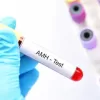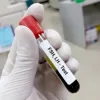Frequently Asked Questions
Find answers to some of the most commonly asked questions
I’ve run out of needles and syringes, what can I do?
The clinic can provide needles and syringes to you at an extra cost. Alternatively, most pharmacies can and will provide them alongside your medications. Please ensure you monitor your stock levels of needles and syringes to enable administration of medications and let us know in advance if you are going to require additional supplies.
I need more medications, what can I do?
During treatment, we ask you to keep any eye on your medication stock levels and we will ask you at all appointments if you have enough until your next appointment date. For all treatments, please allow us a minimum of 48 hours to arrange prescriptions and dispensing of required medications. You should contact a nurse during clinic hours, via phone, email or during your clinic visit if you are aware you will require further medications.
Can I take pain relief during treatment?
Due to the nature of IVF medications, you may require pain relief during your treatment. It is safe to take both paracetamol and ibuprofen until after your embryo transfer, when we would recommend paracetamol only. If you have alternative pain relief prescribed by your GP, then please inform the nurses so we can confirm with our team of consultants that it is safe to take during treatment.
Can I have intercourse while in treatment?
Once you have commenced IVF stimulation medications, we advise that you avoid unprotected intercourse. We also recommend that you avoid sexual intercourse for 3 days following your embryo transfer.
Can I go to work during treatment?
Going to work should be considered on an individual basis. We would advise to avoid high stress levels, and strenuous activity, especially once stimulation medications have been commenced. However, day to day, low intensity routines would not be affected. If you are unsure whether you should continue to work, please discuss further with a nurse. We do advise that for 24 hours following your egg collection you should not return to work.
Can I exercise during treatment?
We advise that you only do low impact exercises once you are in treatment. Low impact exercises are exercises that do not put a lot of stress on your body like walking.
Are there any foods I should avoid or increase in my diet during treatment?
When it treatment, we advise you keep a healthy and balanced diet with a high fluid intake. There is no evidence that supports any specific foods increase your gamete quality or treatment outcomes. For advice regarding food in pregnancy please see: Foods to avoid in pregnancy - NHS (www.nhs.uk)
What additional supplements would be recommended during treatment?
We encourage all women undertaking fertility treatment to take Vitamin D 10mcg and Folic Acid 400mcg supplements. There is little evidence to suggest further supplements are required.
What are normal symptoms following egg collection?
You may experience some mild cramping and bloating following your egg collection. Some spotting is also to be expected on the day. The effects of the sedation you will receive for your procedure may remain in your system for up to 24 hours, therefore feeling a little tired and drowsy is normal. If you have any symptoms that concern you, please inform a nurse
What are normal symptoms following embryo transfer?
It is normal to experience increased discharge, which may have a pink or brown tinge. Similarly, increased hormonal symptoms (mild headaches, cramping, breast tenderness) are all to be expected due to the progesterone medications that are administered following your embryo transfer. If you have any symptoms that concern you, please inform a nurse.
What are normal symptoms in early pregnancy?
Similarly, to following your embryo transfer, hormonal side effects (mild headaches, cramping, increased discharge with a pink/brown tinge, breast tenderness) are to be expected in early pregnancy. It is also normal to experience nausea and some people will experience sickness. If you are struggling to tolerate fluids, experience any heavy bleeding or sharp pains, please contact an early pregnancy unit, or visit your local emergency department.
When should I consider seeking emergency help?
If you experience any OHSS symptoms (extreme bloating, vomiting, reduced urine output or breathlessness), heavy bleeding following your egg collection, or heavy bleeding in early pregnancy *or if *you are concerned and require advice from a nurse, you can contact the clinic during opening hours or via the out of hours emergency line. If you are unable to speak with a nurse from the clinic, please refer to NHS services such as 111 or visit your local emergency department.
I have not had my period after my egg collection, what can I do?
Whilst we advise that in most cases, you will experience a withdrawal bleed from your egg collection 5-7 days later, it is normal for this to take up to 14 days. If your period still hasn’t come after 14 days, then please call up the IVF London Nurses during clinic hours so that we can assess whether you require a further scan or medication to induce a bleed. Please note that everybody is different so there is not a ‘one size fits all’ answer to when to expect your withdrawal bleed.
I’m struggling to access my consent forms, what shall I do?
Please ensure that your consent forms are complete before your first tracking scan appointment at IVF London. If you are struggling to access your forms with the link sent to your mobile number, then please contact the IVF London Nurses via call or email during clinic hours and we will be able to re-set the link and send a direct link via email so you can complete the forms on a desktop.
Can I swim during treatments?
Yes no restrictions until embryo transfer when we would sugest avoiding due to infection risk.
Can I use a hot tub / sauna during treatment?
Avoid the hot tub/Sauna during treatment and once pregnant.
How do I know when day 1 of my cycle is?
We consider Day 1 of your period to be the first day of “full flow” (i.e. not just spotting that precedes your period). If you were asked to call your nurse on day 1 of your period, please only call during daytime hours (9am-5pm; weekends included). If after 5pm, please call the next morning.
Is bleeding between periods normal?
This can be a result of medications given, or can be a sign of a possible hormonal or structural issue such as a polyp or fibroid. You should contact your team nurse if this occurs unexpectedly.
Should I stay on my usual prescribed medications during treatment?
(such as blood pressure tablets) You should have a discussion with your doctor about all medications that you currently take prior to starting treatment, but typically you can remain on most medications unless specifically asked to stop.
Can I drink caffeine / coffee during tratement?
Limit caffeinated beverages to two 8 oz caffeinated beverages per day (or less than approximately 150-200mg caffeine) during treatment and when pregnant.
Why do I need to take a low dose aspirin?
Although not routine, there are a number of potential reasons your physician may recommend for you to take baby aspirin during treatment; please discuss directly with them and only take aspirin if you are advised to do so by your physician.
Is it ok to have my hair coloured during treatment?
The data on the effect of hair colour on IVF outcomes is very limited. We recommend that you wait until the second trimester (or after pregnancy), or check with your Obstetrician once you are pregnant.
Can I have a manicure / pedicure during treatment?
No clear restrictions, but we recommend you go somewhere with good ventilation.
What support is available duiring this time?
There are many services available. Through IVF London we have a counsellor, we can happily pass you her details.
When will I get my period after taking Provera?
It is usually within 3- 5 days; if no period by then, contact your team nurse.
I have a rash / reaction after taking my injections, what should I do?
Injections can be irritating and you may see redness at injection site; this is common and does not represent a true allergic reaction. Using ice at the injection site can help with discomfort and redness. It should go away within 24 hours. If you develop breathing changes or other serious signs/symptoms of a severe allergic reaction (very rare), call 111 or 99 dependent upon severity.
Is it ok if I am a little late with my medications?
It's preferable to take them at the same time every evening if feasible.
Is it ok if I am late with my trigger shot?
No, The “trigger” shot prior to egg retrieval is the one medication that is time-sensitive. If you have given it late, please contact the nursing team ASAP.
When will my PGS results be available?
On average, results are received about three weeks from egg retrieval.
Can I drink alcohol during treatment?
We suggest that you limit it to an occasional drink during treatment and avoid drinking alcohol once you are pregnant.
What does it mean when I have a cyst on my ovaries?
Ovarian cysts are very common and associated with your normal menstrual cycle; usually they will resolve on their own. If there are any concerns your physician will discuss with you.
Is it safe to fly after embryo transfer?
There are no restrictions, but we would advise you to wait for your pregnancy scan so that we can assess viability and pregnancy location. Pregnancy can increase your risk of blood clots and theefore we would suggest you to seek advice from your midwife prior to travel.
Do I need a full bladder for my scans?
An empty bladder is best for vaginal ultrasounds and a full bladder is best for abdominal ultrasounds (including for embryo transfer).
What does the embryo grading mean?
Embryo grading tells us about the rate of embryo growth and integrity of the cells; however, it does not give us any genetic information about the embryo (if it is chromosomally normal).
I am pregnant and spotting, is this ok?
We often see pink/red/brown spotting, which can be a small amount of blood from the egg retrieval/embryo transfer/IUI mixed with vaginal discharge and this is typically not concerning. You can also commonly see spotting related to vaginal/cervical irritation from vaginal progesterone application (if you are taking this medication) or after intercourse. If you have heavy bright red bleeding, please contact your team nurse.
My initial results came back normal, why am I not getting pregnant?
'The initial testing is useful in detecting large problems such as low sperm counts or blocked fallopian tubes. Approximately 20-25% of patients presenting with infertility will have normal testing (called "unexplained infertility"). This may be at least partly explained by an age-related decline in fertility. Often we are able to obtain further information as to why you have not fallen pregnant through monitoring and may be able to help overcome this underlying infertility with treatment.'





